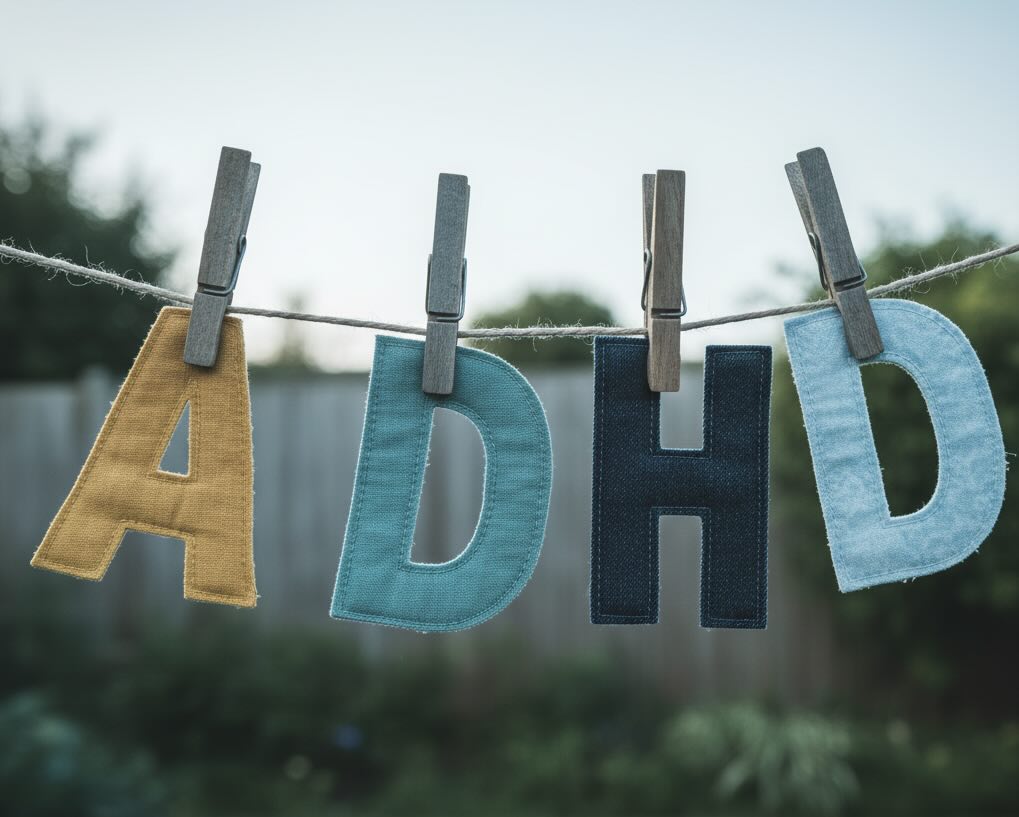What is Caffeine Dependence?
Everyday language vs diagnostic terms
People often say “caffeine addiction” to describe feeling unable to function without coffee or energy drinks. In clinical language, you’ll see terms like:
- Caffeine use disorder (CUD) – proposed in DSM-5 / DSM-5-TR as a “condition for further study” (not yet a full official substance use disorder in the same way as alcohol or opioids, even though many people clearly experience dependence-like patterns).
- Caffeine withdrawal – an official DSM-5 diagnosis describing the cluster of symptoms after stopping or sharply reducing regular caffeine use (e.g. headache, fatigue, low mood, irritability).
- Caffeine-related disorders – DSM-5 also recognises caffeine intoxication, caffeine-induced anxiety disorder and caffeine-induced sleep disorder.
When does normal use become a problem?
Most adults worldwide use caffeine regularly, and up to 400 mg per day (roughly four 8-oz cups of brewed coffee) is generally considered safe for most healthy adults.
Caffeine use becomes problematic when patterns look like this:
- You regularly consume much more than you intended.
- You can’t cut down despite repeated attempts.
- You keep using even though it clearly worsens sleep, anxiety, palpitations, blood pressure or GI problems.
- You have strong cravings or feel you “can’t function” without it.
- You experience tolerance (needing more for the same effect) and withdrawal if you stop.
- Your caffeine use is causing distress or impairment in work, study, health or relationships.
Caffeine Dependence Symptoms
Core features of problematic use
- Loss of control
- You plan to have one coffee and end up having four.
- You try to cut down but never get far.
- Using more than intended
- “Just a small energy drink” turns into several across the day.
- Time and focus spent on caffeine
- Thinking a lot about when you can have your next dose.
- Going out of your way to get caffeine, or feeling unsettled if you can’t.
- Continued use despite harm: You keep drinking caffeine even though you know it worsens:
- Insomnia or broken sleep
- Anxiety, jitteriness, palpitations
- Reflux, IBS-type symptoms, frequent urination
- Blood pressure or heart issues, as advised by your doctor.
- You experience tolerance: Needing stronger coffee, more shots, or extra energy drinks to feel the same effect.
- You experience withdrawal: when you cut down or miss caffeine (see below).
Physical symptoms of heavy use
High or chronic caffeine intake can cause:
- Jitteriness, tremor, feeling “wired”
- Rapid heartbeat or palpitations
- Raised blood pressure (especially in sensitive people or at high doses)
- Restlessness, pacing, inability to relax
- Stomach upset, reflux, diarrhoea or needing the toilet often
- Headaches or migraines in some people
- Worsened anxiety or panic in those prone to it
- Difficulty falling or staying asleep, or waking too early.
Very high doses (for example, large amounts of pills, powders, energy shots) can lead to caffeine overdose, which may cause serious heart rhythm problems, seizures or, rarely, death.
Caffeine withdrawal
If you suddenly stop or sharply reduce regular caffeine after prolonged use, you may experience withdrawal, typically starting within 12–24 hours, peaking around 1–2 days, and lasting for up to a week in most people.
Common symptoms include:
- Headache (often described as pressure or throbbing)
- Marked fatigue or drowsiness
- Low or “flat” mood
- Irritability, feeling unusually snappy or emotional
- Difficulty concentrating, “brain fog”
- Flu-like aches, nausea or general malaise.
Withdrawal is uncomfortable but not usually dangerous for otherwise healthy people, but it can be distressing enough that people go straight back to caffeine, which keeps the cycle going.
How it can feel day-to-day
People who feel “addicted” to caffeine often describe:
- Feeling trapped between needing caffeine to function and knowing it’s harming sleep, anxiety or health
- Planning the whole day around access to coffee, tea or energy drinks
- Carrying spare cans or sachets “just in case”
- Racing heart, shakiness or panic after strong drinks, especially on an empty stomach
- Lying awake at night, then needing even more caffeine to get through the next day
- Avoiding trying to quit because previous attempts led to headaches, exhaustion and irritability.
When to seek help
Get urgent or emergency medical help straight away if you:
- Have chest pain, crushing pressure, severe shortness of breath or fainting
- Have a very fast or irregular heartbeat, confusion or seizures after consuming a lot of caffeine
- Have thoughts of self-harm or suicide, or feel you might act in ways that could seriously harm you or someone else.
See a qualified health professional if:
- You’ve tried to cut down but can’t, and caffeine is clearly affecting sleep, anxiety, mood, blood pressure or heart rhythm
- You’re drinking large amounts of strong energy drinks, caffeine pills or powders
- You’re pregnant, trying to conceive, breastfeeding, or have heart problems, high blood pressure or anxiety disorders and are unsure what’s safe for you.
How Do You Assess Caffeine Dependence?
There’s no single blood test for problematic caffeine use. Assessment is about patterns, impact and context. Formal diagnosis should therefore involve a few steps:
- Start with a broad multi-disorder mental health screen: Because caffeine interacts strongly with sleep, anxiety, mood and attention, it’s very useful to look at everything together, not just caffeine in isolation. This reduces the risk that caffeine problems get missed or that everything is blamed on caffeine when there’s more going on. A multi-condition assessment, like Loffty, can help you:
- See how caffeine use sits alongside anxiety, depression, insomnia, ADHD and other conditions
- Notice patterns between your dose and symptoms (e.g. panic spikes on high-caffeine days)
- Create a structured picture to take to your GP, psychologist or psychiatrist.
- Clinical interview: A specialist will consider whether you meet proposed criteria for caffeine use disorder, and whether diagnoses like caffeine withdrawal, caffeine-induced anxiety or sleep disorder apply, using DSM and/or ICD frameworks. They will usually ask more questions about:
- How much caffeine you use per day and from which sources (keep a caffeine diary of drinks, doses, times, and symptoms for a week or two can be helpful)
- Attempts to cut down and what happened
- Withdrawal symptoms when you skip caffeine
- Health issues (sleep, heart, stomach, blood pressure, anxiety, pregnancy etc.)
- How much your caffeine use is affecting work, study, finances or relationships
- Medical checks: When tailoring a plan, your specialist will look after your safety by:
- Check blood pressure, heart rate and weight
- Review existing diagnoses (e.g. hypertension, arrhythmias, reflux, pregnancy)
- Consider blood tests or heart investigations if indicated.
How Do You Treat Caffeine Dependence?
The aim isn’t to shame you into being “pure”. It’s to help you move from compulsive, harmful use toward a pattern that supports your sleep, mood and health – which might be no caffeine, less caffeine, or better-timed caffeine, depending on your situation.
Foundations: understanding and planning
Helpful first steps:
- Know your actual intake: add up mg of caffeine from coffee, tea, cola, energy drinks, pre-workout, pills and chocolate. (Labels + typical values can help; most 8-oz coffees are ~95 mg, but this varies.)
- Clarify your goal: quit completely, or get down to a safer level (e.g. ≤200–400 mg/day, or less if pregnant / heart issues).
- Identify key triggers: time of day, stress, boredom, habit, social cues, study/work culture.
Gradual reduction (“tapering”)
For most people, a gradual reduction is kinder than going cold-turkey:
- Cut back by 10–25% of your daily dose every few days, rather than all at once.
- Swap some drinks to:
- Half-strength coffee/tea
- Decaf versions
- Non-caffeinated alternatives (water, herbal tea, milk, etc.)
- Bring your last caffeine of the day earlier (e.g. no caffeine after midday or mid-afternoon) to help sleep.
- Expect mild withdrawal, headache, fatigue, grumpiness, and plan extra rest, fluids and simple pain relief as advised by your doctor if needed.
If your dose is very high, or you have cardiac, neurological or pregnancy-related concerns, it’s wise to discuss a taper plan with a qualified professional first.
Cognitive-behavioural strategies
Studies show that brief cognitive-behavioural therapy (CBT) and structured self-help programmes can significantly reduce problematic caffeine use. These often include:
- Psychoeducation: how caffeine affects the brain, sleep, anxiety and withdrawal
- Goal-setting and monitoring: tracking intake, symptoms and progress
- Coping strategies: alternative ways to manage fatigue, stress or boredom
- Cognitive work: challenging beliefs like “I literally can’t function without coffee” and testing them in small steps
- Relapse-planning: what to do if you have a high-caffeine day, so it doesn’t become “I’ve ruined it, may as well go back to 6 energy drinks”
Medication
There is no specific medication for caffeine addiction itself. Doctors may occasionally use:
- Simple pain relief for withdrawal headaches (short-term, following medical advice)
- Treatment for co-occurring issues (e.g. anxiety, depression, insomnia, migraines, blood pressure).
Any medication decisions should be made with a qualified prescriber who understands your health picture.
Special situations
- Pregnancy/trying to conceive / breastfeeding: many guidelines recommend ≤200 mg/day or less, and sometimes avoiding caffeine altogether, because higher doses have been linked to risks in pregnancy.
- Heart disease, arrhythmias, high blood pressure: you may need stricter limits or to avoid caffeine.
- Severe insomnia or anxiety: even “moderate” caffeine may be too much for some; reducing or eliminating caffeine is often part of treatment.
Caffeine Dependence Research
How common is problematic caffeine use?
- Around 80–90% of adults in some countries use caffeine regularly.
- Using proposed DSM-5 criteria, some studies suggest that up to about 1 in 5 regular users may meet thresholds for caffeine use disorder, though other samples find more modest rates.
- People who meet criteria for caffeine use disorder tend to report significant distress and functional impairment related to their caffeine use, not just a mild habit.
Links with mental health
Recent work suggests that caffeine use disorder symptoms and withdrawal are linked with higher depression, anxiety and stress scores in some adult samples – though the relationship is complex and likely bidirectional.
Health risks – and potential benefits – of caffeine
Moderate caffeine intake appears safe for most healthy adults, and some studies suggest benefits (for example, potential reductions in risk of certain cardiovascular and metabolic conditions, and possibly a longer “healthspan” when coffee is consumed in moderate amounts). However, excessive or poorly timed use is associated with:
- Sleep disruption and daytime fatigue
- Anxiety, jitteriness and panic in susceptible individuals
- Higher blood pressure and possibly cardiovascular risk in some groups
- Digestive problems and reflux
- Headaches, dependence and withdrawal syndromes.
The current evidence supports a balanced view: caffeine is a psychoactive drug with both benefits and risks, and a subset of people experience clear dependence-like patterns that warrant attention and support.
Books and Resources on Caffeine Dependence
- Caffeine Blues: Wake Up to the Hidden Dangers of America’s #1 Drug. Stephen Cherniske. A detailed, critical look at caffeine’s impact on physical and mental health and how to reduce or quit.
- The Easy Way to Quit Caffeine. Allen Carr. A concise self-help book applying the Easyway method (known from smoking cessation) to caffeine, with step-by-step guidance for quitting.
- Quit Coffee for Good: How to Overcome Caffeine Addiction and Take Back Your Energy (various self-help approaches).
- The Little Book of Quitting Caffeine: Freedom From Addiction (very short, motivational guide).




